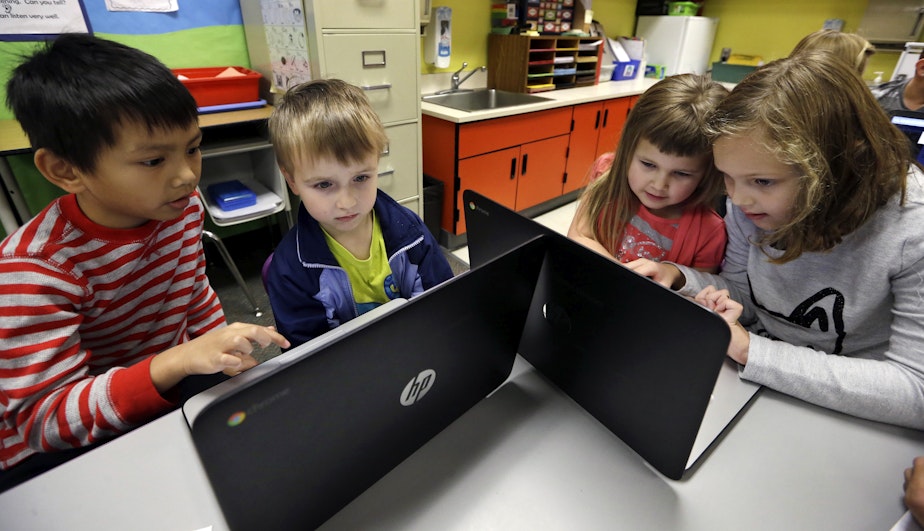AI in the classroom? What we can learn from social media's rise, according to WA schools chief

Washington just became the fifth state to issue guidelines for how AI technology is used in the classroom.
AI software like ChatGPT usually makes headlines for how it could help students cheat, but State Superintendent of Public Instruction Chris Reykdal said that while those stories make the news, the reality is more nuanced. There are numerous benefits to AI technology and its advance is inevitable and unrelenting.
Reykdal said banning AI in the classroom outright is not an option.
"The idea of stopping or slowing it down or having a fear based approach to it is really just unproductive," he said.
RELATED: Washington schools chief encourages educators to embrace AI and use it in class
Sponsored
Reykdal added that the consequences of not planning for AI’s growth both inside and outside of schools could be dire. He pointed to schools’ lack of attention to social media over a decade ago. He connects that negligence to widespread misinformation today.
"We didn't immediately bring this into our classrooms as a way to teach kids the downside risks and the positives to it. And I think that's the learning lesson. It's why we've gotten so aggressive with our AI guidance is to say: It is here. So let's spend more time very intentionally teaching kids the strengths and weaknesses of it," he said.
The new guidance on AI was published by Reykdal's office last week.
It highlights a human-centered approach to using AI and encourages teachers to help students build AI literacy. It also advises educators to focus on how it can augment creativity and critical thinking instead of replacing it.
"I want you to go start with three to five page essays that are done in seconds, but then changing classroom time, so that students then have to demonstrate they really understand what was produced, why it was produced, how they shape and change it," Reykdal said.
Sponsored
There’s no suggested curriculum here. But it’s the start of a conversation about how districts should approach the technology.
At this point, Reykdal said, opinions are all over the map about the technology across the state – from educators and districts who are skeptical, to those who are embracing it.
Last year, Walla Walla Public Schools blocked access to ChatGPT due to privacy and cheating concerns. The district then walked that policy back.
The same story played out at Seattle Public Schools.
Many Washington districts didn’t wait for guidance from OSPI to start thinking about AI and training staff on its uses.
Sponsored
In the Mukilteo School District, instructional technology specialist Amie Parker regularly holds “tech clubs.”
She describes those meetings as like a book club, but for technology.
"I think that we are only beginning to understand exactly how it's going to change the way that students produce content, the way that they evaluate what the AI puts out," she said.
"There's a lot that we need to understand and shift the way that we're teaching, and what we're asking of students in order to be able to accommodate this new tool," Parker added.
Listen to Soundside’s full conversation with Amie Parker by clicking the play icon at the top of this story.





